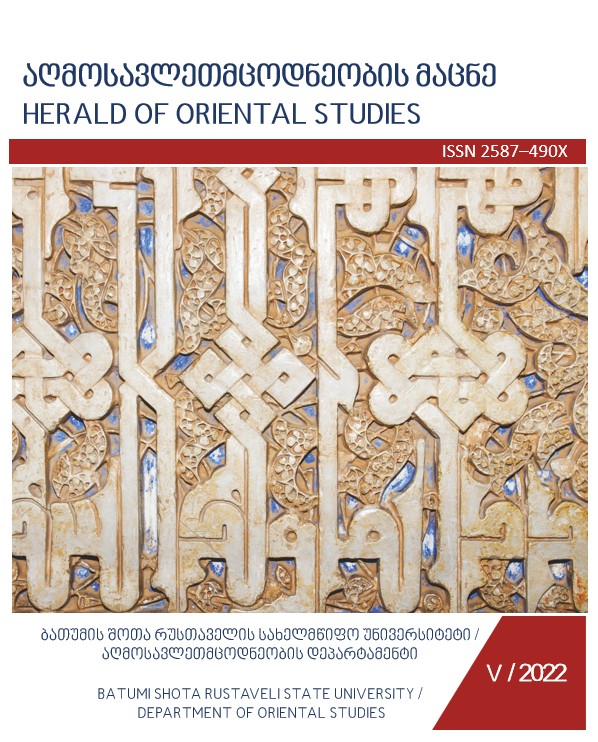ჰურუფიზმი - ასტრაბადელი დერვიშის ბათინური მოძღვრება
Hurufism- the batin doctrine of the dervish from Estarabad
Author(s): Kashia AlkazarSubject(s): Language and Literature Studies, Studies of Literature, Islam studies, Philology
Published by: ბათუმის შოთა რუსთაველის სახელმწიფო უნივერსიტეტი, ჰუმანიტარული მეცნიერებატა ფაკულტეტის აღმოსავლეთმცოდნეობის დეპარტამენტის „ელექტრონული ჟურნალი“.
Keywords: Hurufism; Estarabad; Esoteric;
Summary/Abstract: There have been two ways of development in the history of religion: external (exoteric - zaher) and internal (esoteric - batin). Differences between these two diverse theories often turned into sharp conflicts. These cases were especially evident in the reality of the East, where extreme `Batin'/"Baten" were pursued and their representatives were treated with fire and sword.Hurufism was founded by Fazlullah Abu Muhammad,- a dervish from Estarabad. It does not represent a new doctrine and it's closely related to Sufism, but it fundamentally differs from this form of islam in a number of issues. According to the Hurufian doctrine, we should consider the divine word - 'Logos' as the first cause of the creation of the universe. That is why the word is the essence of creation, and the letter is the basis of the existence of the visible world (in general, the term `hurufism' is Arabic and means letters, alphabet).The metamorphosis of the letters of the divine word must be sought in every object and event, because Muhammad preached in Arabic (i.e. 28 letters), and Fazlullah in Persian (i.e. 32 letters), the numerical sum of these 28 and 32 letters is given potentially in everything and we have an obligation to discover it, through which we will know the divine essence. This is the only and true way to find the truth. That is why they look for the sum of these 28 and 32 letters everywhere, they connect everything to it, and their logical reasoning is obscured and reduced to misunderstanding by the mystical symbolism of these numbers. Hurufism considers human as the object of its knowledge and worship, which, according to Hurufists, represents the microcosm of God, the ultimate goal of God's creation.
Journal: საერთაშორისო სამეცნიერო ჟურნალი „აღმოსავლეთმცოდნეობის მაცნე“
- Issue Year: 5/2022
- Issue No: 2
- Page Range: 179-194
- Page Count: 16
- Language: Georgian

